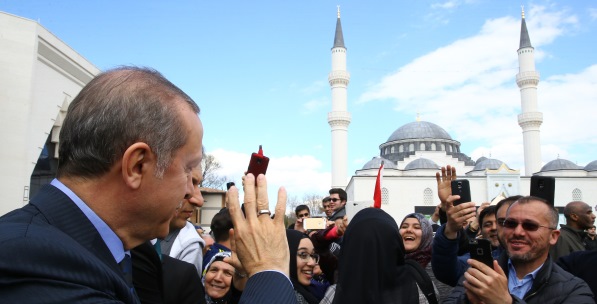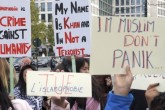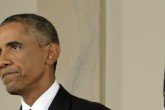The aftermath of the global economic crisis witnessed a process of systematic transformation in the global political economy whereby the perceived clarity of undisputed political and economic dominance by the United States became relatively blurred. Economically, the crisis was the first financial calamity that resulted from fragility in U.S. markets since the Wall Street Crash of 1929 therefore, the U.S. Federal Reserve (Fed) and U.S. Treasury Department had to undertake the bulk of the burden incurred by implementing massive financial rescue packages. Yet, the overall system of economic governance evolved toward a more participatory and inclusive direction with the empowerment of global platforms such as the G20, which gave major emerging and middle powers relatively more weight and influence in global decision-making processes. Politically, on the other hand, the deliberative strategy of the administration of U.S. President Barack Obama to withdraw from direct military operations abroad, shift the geopolitical priorities toward the Asia-Pacific region and adopt a back-seat attitude vis-à-vis the endless conflicts in the Middle East opened up new operational areas for several middle powers, including Turkey.
It is now crystal clear that Turkey’s ascendancy as a middle power and regional play-maker in the Middle East went pretty well up until 2011 but has faced multifaceted difficulties and challenges afterward, especially in the wake of the escalation of the Syrian civil war. Turkey was wrongly accused of supporting DAESH and has been ostracized in the international political system, the resolution process collapsed domestically and coordinated terror attacks damaged the national psyche, reminding careful observers of the vicious developments of the 1970s and the 1990s. But unlike previous cases of national distress and international pressure when Turkey’s democratic system witnessed interruptions and the economy experienced financial crises, the resilience of political structures and the economic ecosystem proved incomparably robust while President Recep Tayyip Erdoğan’s strong leadership provided comfort in turbulent waters. Amid all domestic turbulence and regional geopolitical challenges, Turkey’s economy grew at an unexpected 4 percent in 2015 and the incumbent Justice and Development Party (AK Party) continued to receive substantial democratic support with a 49.5 percent electoral victory in the last general elections that were held in November.
Undoubtedly Turkey enjoys a critical geopolitical importance, and Western policymakers developed a tendency to perceive the country via the lens of regional security and geopolitics since the Cold War. Therefore, it is hardly surprising to observe the inclination of the American security establishment to prioritize Turkey’s position as a potential ally of the Democratic Union Party (YPG) in the fight against DAESH in Syria – an approach that openly contradicts Turkey’s domestic counterterrorism agenda. Similarly, one could sense the tendencies of European policymakers to conceive Turkey as a buffer zone that could protect them from the refugee flows from the Middle East. Yet, Turkey successfully resisted Western predispositions to be conceived as a third world country with useful security contributions and little contribution to regional and global governance. Instead, it showed resilience and decisiveness to remain as a political and economic powerhouse in the most troubled region of the world.
Therefore, when President Erdoğan arrived in Washington to participate in the World Nuclear Summit, he had an extremely busy meeting schedule with key policymakers including President Obama, Vice President Joe Biden and Secretary of State John Kerry, along with meetings with other leaders on the margins of the summit. Just as important, he chaired a high-level round table with the CEO’s and chairpersons of the largest American multinationals in the aviation, defense, finance, energy, and electronics sectors such as Lockheed Martin, Dow Chemicals, Boeing, Citibank, Boston Scientific, Motorola, Westinghouse and Raytheon. Topping the agenda of discussion in this elite gathering was the Transatlantic Trade and Investment Partnership (TTIP) trade deal and potential opportunities for Turkey’s incorporation in the emerging trading system.
Despite heated domestic political debates surrounding the issues of media and academic freedom, combat against the Gülenist Movement and counterterror policies, Turkey’s efforts to preserve and galvanize its position as an effective middle power in the international system continues unabated. Erdoğan’s critical visit to the U.S. is likely to be remembered as a milestone in that respect.
[Daily Sabah, April 1, 2016]
In this article
- Foreign Policy
- Opinion
- 1929
- 1970
- 1990
- 2011
- 2015
- 2016
- Civil War
- Cold War
- Counterterrorism
- DAESH
- Daily Sabah
- Elections
- Europe
- Fethullah Gülen
- Fight against DAESH
- Fight Against Terror
- G20
- Gulen Community
- Gülen Movement
- Gülenist Terror Group
- Joe Biden
- Middle East
- Middle Power
- People's Protection Units (YPG)
- PKK - YPG - SDF - PYD - YPJ - SDG - HBDH - HPG - KCK - PJAK - TAK - YBŞ
- Recep Tayyip Erdoğan
- Syria
- Syrian Civil War
- Syrian Conflict
- Syrian Crisis
- Terror
- Terror Attack
- Terrorism
- The President of the Republic of Türkiye
- Turkish Foreign Policy
- Turkish President
- Türkiye
- Türkiye's Justice and Development Party | AK Party (AK Parti)
- United States (US)
- US President
- Western World


